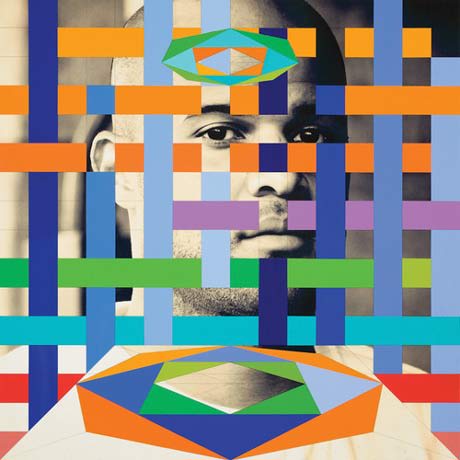The Great Rap Jiggy vs. Backpack Civil War of the late '90s and early '00s didn't have a clear winner, but there were certainly a few martyrs. Chief among them was the independent New York label Rawkus Records. More than anything, Rawkus represented a refuge for the rap nerd, a place to enjoy rapping for rapping's sake, beats that really only worked in a pair of headphones and room for progressive ideas. The promise of Rawkus fizzled as the industry did, but the market for plain old wordplay never dried up completely, which is why a decade later, someone like Homeboy Sandman can flourish.
With six full-length releases and another six EPs in seven years, clearly work ethic is not a problem for Homeboy Sandman. Fittingly, Hallways opens with a homage to Mos Def and Talib Kweli's "Definition," a Rawkus classic, in the form of "1,2,3" produced by DJ Spinna. One of the album's most upbeat moments, this intro finds Homeboy performing peak verbal gymnastics, staying in the same pattern pocket for the length of the song. Listeners are then treated to one of the album's most interesting moments with the song "America, The Beautiful." Over a Jonwayne beat that sonically harkens back to Little Brother's "Tigallo For Dolo," Homeboy Sandman reminds listeners that America isn't such a bad place overall and that "We are the 99% locally, 1% globally." "Refugee," meanwhile, is a classic Queensbridge-sounding track focused on belonging, both physically and beyond. That isn't to say Hallways spends its entirety trying to sound like a bygone era. "Grand Pupa" is a chorus-less, slow and smoky four-on-the-floor-driven song about Homeboy's desire for and failings with women.
After a certain point though, all that fantastic verse and couplet writing should give way to decent song writing, and that's where Hallways at times falls flat. Good hooks are few and far between, especially on songs such as "Problems" and the Blu-assisted "Loads," the latter being the closest approximation to Homeboy's earlier lighthearted songs. He is no stranger to addressing serious issues, but there are times towards the end of Hallways where things get muddled, as too many inconclusive self-reflective raps and unremarkable instrumentals fill the space.
In the end, those with unwavering support for wordplay will probably embrace Hallways wholeheartedly. Within its niche, it satisfies, but Homeboy Sandman's irrefutable skill level and work ethic deserves a bigger spotlight.
(Stones Throw)With six full-length releases and another six EPs in seven years, clearly work ethic is not a problem for Homeboy Sandman. Fittingly, Hallways opens with a homage to Mos Def and Talib Kweli's "Definition," a Rawkus classic, in the form of "1,2,3" produced by DJ Spinna. One of the album's most upbeat moments, this intro finds Homeboy performing peak verbal gymnastics, staying in the same pattern pocket for the length of the song. Listeners are then treated to one of the album's most interesting moments with the song "America, The Beautiful." Over a Jonwayne beat that sonically harkens back to Little Brother's "Tigallo For Dolo," Homeboy Sandman reminds listeners that America isn't such a bad place overall and that "We are the 99% locally, 1% globally." "Refugee," meanwhile, is a classic Queensbridge-sounding track focused on belonging, both physically and beyond. That isn't to say Hallways spends its entirety trying to sound like a bygone era. "Grand Pupa" is a chorus-less, slow and smoky four-on-the-floor-driven song about Homeboy's desire for and failings with women.
After a certain point though, all that fantastic verse and couplet writing should give way to decent song writing, and that's where Hallways at times falls flat. Good hooks are few and far between, especially on songs such as "Problems" and the Blu-assisted "Loads," the latter being the closest approximation to Homeboy's earlier lighthearted songs. He is no stranger to addressing serious issues, but there are times towards the end of Hallways where things get muddled, as too many inconclusive self-reflective raps and unremarkable instrumentals fill the space.
In the end, those with unwavering support for wordplay will probably embrace Hallways wholeheartedly. Within its niche, it satisfies, but Homeboy Sandman's irrefutable skill level and work ethic deserves a bigger spotlight.
